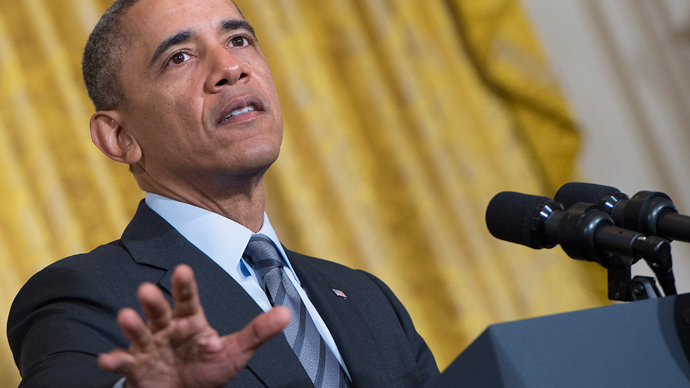Obama may give in to GOP and drop pathway-to-citizenship plan for immigrants

United States President Barack Obama suggested he might be willing to compromise with Republicans and support an immigration bill that does not include a special pathway to citizenship if it meant passing an overhaul of the current system.
The president didn’t outright say such a bill would garner his support, but the comments represent a shift in tone compared to the past, when Democrats demanded that any immigration reform bill include a pathway for illegal immigrants to eventually become citizens of the United States.
Obama’s comments, offered in an interview with CNN, were made public a day after House Republicans announced their own principles concerning immigration reform. Their vision would mandate a larger focus on boosting border security and law enforcement, reform the immigration system to keep high-skilled workers and more.
Although Republicans stated their opposition to a “special path to citizenship,” they did announce their support for granting legal status for immigrants already in the US unlawfully. Obama said that if immigrants could then apply for citizenship through the normal process, the two sides could potentially reach an agreement.
“If the speaker [of the House, John Boehner] proposes something that says right away, 'Folks aren’t being deported, families aren’t being separated, we’re able to attract top young students to provide the skills or start businesses here and then there’s a regular process of citizenship,' I’m not sure how wide the divide ends up being,” Obama told CNN, according to the New York Times.
“What I’m encouraged by is the fact that Mr. Boehner and others seem to recognize our country will be stronger if we are able to resolve this issue in a way where, you know, kids, for example, who have grown up here and for all practical purposes are Americans but don’t have the right papers are not being punished.”
As the Times noted, when the president was asked specifically if the pathway to citizenship could be abandoned in order to pass a bill, Obama did not reject the proposal.
“The question is, is there more that we can do in this legislation that gets both Democratic and Republican support, but solves these broader problems, including strengthening borders and making sure that we have a legal immigration system that works better than it currently does,” he said.
Immigration reform has been a top priority for Obama since his first term, though efforts to successfully pass legislation have faltered multiple times. The controversial issue was sidelined after Republicans won control of the House of Representatives in 2010, as conservatives criticized his proposal to offer citizenship to illegal immigrants as “amnesty,” and ran against his plan in the 2012 election.
Following Obama’s reelection, the president’s position on the issue was boosted briefly by the passage of a comprehensive deal in the Senate – a bill which included a pathway to citizenship that involved immigrants paying back taxes and meeting other requirements. However, Speaker of the House John Boehner has refused to put the Senate bill up for a vote, saying House Republicans would unveil a plan of their own.
"I have been clear that I oppose the massive, flawed immigration reform bill passed by the Democratic-controlled Senate,” Boehner said on Thursday following the release of the GOP principles. “I’ve been clear that the House will not take it up or engage in negotiations with the Senate on it… We will address this issue in a step-by-step, common sense fashion that starts with securing our nation’s borders and enforcing our nation’s laws."
Asked what the president’s latest comments meant for the process going forward, White House Press Secretary Jay Carney emphasized Friday that “this is the beginning of a process in the House, not the end, and what [Obama] is saying is he isn't going to prejudge that process.”
“We have seen significant and important progress,” Carney added. “First in the Senate, with the bipartisan bill that embodies the principles the president laid out. And now in the House, where it’s fair to say that the operating position a year or so ago was self-deportation.
“Now there is movement, and that’s a good thing. But were still early in this process, and we are mindful of the fact that the House needs to take action, and we look forward to a debate being engaged in the country about why its so important to have comprehensive immigration reform.”














